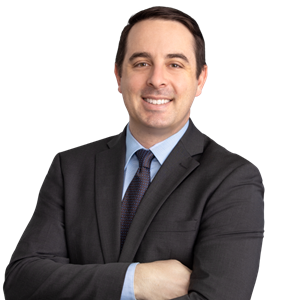
In With The New – Part Three
BBK’s New Law Guidance for a Well-Informed Start to 2023
In Part Three of our “In With the New” series, Best Best & Krieger LLP covers important new legislation related to elections, public works and public resources. Below, you will find takeaways and analyses of the following: AB 2582, AB 2584, SB 1439, AB 2463, AB 1851 and SB 1046.
ELECTIONS
Recalls
AB 2582
Prior to AB 2582, California law required local city, county, school district, community college district, special district, or a judge of a trial court recall elections to pose two questions to the voter: (1) Whether the elected officer should be removed from office?, and (2) if so, who shall succeed the officer for the remainder of the elected term? Beginning January 1, 2023, AB 2582 will change local recall elections into one question elections: Should the elected officer be removed from office? If a majority of voters voting on the question say “yes,” the elected officer is removed from office and AB 2582 declares the office vacant to be filled by a successor according to law (through council/board vacancy appointment or a subsequent special vacancy election).
AB 2584
Under current California law, registered voters in a jurisdiction seeking to recall a local elected officer must commence the process by serving on the officer, filing with the local elections official and publishing/posting a Notice of Intent to Circulate a Recall Petition (Notice). The Notice includes certain disclosures and information and must contain the signatures of a specified number of local voters who are proponents of the recall. Prior to AB 2584, the absolute minimum number of required signatures was 10, but a minimum of 20 signatures applied to most cities and local agencies. AB 2584 increases the absolute minimum number of Notice signatures to 30, with a higher number applying depending on the number of registered voters in the electoral jurisdiction. In most cities, this minimum requirement will increase to 60 signatures. AB 2594 also requires a school district board recall petition to include a cost estimate of conducting a special recall election.
Campaign Contributions
SB 1439
SB 1439 expands the scope of the Levine Act to cover members of government agencies who are directly elected by voters and tightens other restrictions. Specifically, SB 1438 now prohibits directly elected officials from accepting, soliciting or directing a contribution of more than $250 from any party, participant or their agent, while a proceeding involving a license, permit or other entitlement for use is pending and for 12 months after the final decision (previously three months, pre-SB 1439). Directly elected local officials are also required to disqualify themselves from participating in a proceeding if the party, participant or their agent contributed more than $250 in the preceding 12 months of the date of the proceeding.
SB 1439 also now allows an official to return a contribution, or the portion of the contribution in excess of $250, within 14 days of accepting, soliciting or directing the contribution, in violation of the law, if the official did not knowingly and willfully accept, solicit or direct the prohibited contribution.
We note that the FPPC (In Re Kendrick, 0-22-002) has determined that contributions made to directly elected officials in 2022 do not require disqualification under the Act.
******************************************************************************
PUBLIC WORKS
Volunteer Public Employees
AB 2463
AB 2463 extends from 2024 to January 1, 2031, the exemption from prevailing wage requirements in Labor Code section 1720.4 for work performed for public agencies by volunteers, a volunteer coordinator or a member of the California Conservation Corps or a community conservation corps.
Prevailing Wages
AB 1851
AB 1851 expands the definition of “public works” for the purpose of paying prevailing wages to include the on-hauling of materials used for paving, grading and fill onto a public works project site if the individual driver’s work is integrated into the flow process of construction. The purpose of this bill was to address a series of recent California Supreme Court cases finding that on-haul trucking was not specifically mentioned in statutes comprising part of a public works project, and to ensure that on-haul truckers working on public works projects are paid fairly and on par with off-haul truckers.
Public agencies should consult with their legal counsel to ensure existing and future public works projects comply with this expansion of prevailing wage laws.
******************************************************************************
PUBLIC RESOURCES
Recycling
SB 1046
SB 1046 builds upon existing law that regulates the sale and distribution of reusable grocery bags to customers at specific stores by placing new restrictions on precheckout bags in grocery stores. Specifically, SB 1046 prohibits stores, on and after January 1, 2025, from providing non-compostable or non-recyclable precheckout bags to customers. This bill defines “precheckout” bags as bags offered to customers before the reaching the point of sale that are designed to protect against damage or contamination, or to contain an unwrapped food item, such as loose produce, meat or fish. Notably, precheckout bags do not include bags used to prepackage items prior to their arrival at a store.
As cities and counties continue to enforce the prohibition on single-use bags used after checkout, SB 1046 provides additional tools and enforcement authority to help curb and manage the statewide pollution problem. Cities and counties may begin enforcing the new state prohibition on non-compostable, non-recyclable or single-use precheckout bags starting 2025.
Disclaimer: BBK Legal Alerts are not intended as legal advice. Additional facts, facts specific to your situation, or future developments may affect subjects contained herein. Seek the advice of an attorney before acting or relying upon any information herein.
Key Contacts






